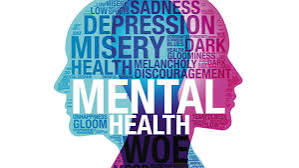Meaning of chest pain.
Chest pain refers to discomfort or pain felt in the chest area, ranging from a dull ache to sharp, stabbing sensations. It can occur due to various causes, from minor issues like indigestion to serious conditions such as a heart attack.

Signs and Symptoms of Chest Pain
Chest pain symptoms common signs include:
1. Sharp, burning, or aching pain in the chest area.
2. Pain radiating to the neck, back, jaw, or arms.
3. Difficulty breathing or shortness of breath.
4. Nausea, dizziness, or sweating.
5. A feeling of tightness or pressure in the chest.
6. Palpitations or irregular heartbeat.

Health Illnesses That May Cause Chest Pain
Chest pain is linked to several health conditions, including:
- Cardiac causes
- Digestive issues
- Musculoskeletal disorder.
- Anxiety and panic attacks.
- Lung conditions.

Tests to Carry Out on Chest Pain
Tests to diagnose the cause of chest pain, include;
- Electrocardiogram (ECG): Measures electrical activity of the heart.
- Blood tests.
- Chest X-rays: Identify lung infections or fractures.
- Echocardiogram: Visualizes heart function.
- Stress test.
- CT scans: Examine blood clots or aortic issues.

Treatment and Recommendations
Treatment depends on the cause:
- For cardiac issues: Medications like nitroglycerin, beta-blockers, or surgery.
- For lung problems: Antibiotics for infections or anticoagulants for clots.
- For digestive issues: Antacids or proton pump inhibitors.
- For musculoskeletal pain: Pain relievers and physical therapy.
General recommendations: Maintain a healthy lifestyle, avoid smoking, manage stress, and seek medical advice promptly for persistent or severe chest pain.
Note: Chest pain should never be ignored, as timely diagnosis and treatment can save lives.

Meaning of chest pain. Chest pain refers to discomfort or pain felt in the chest area, ranging from a dull…

